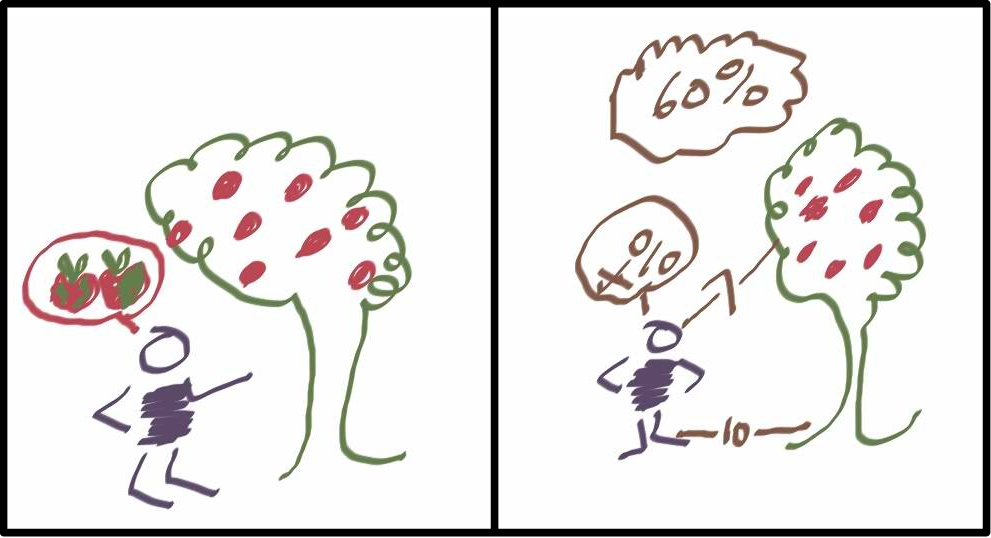Thank you to Steve Holt for the term ‘comparative context’ and Jay Johnson also for the twitter conversation that got me thinking about the difference between numbers and descriptive words when we are setting goals.
‘I want to stand close enough to an apple tree that I can smell the apples’ – in this case numbers are almost irrelevant because the words ‘close enough’ provide comparative context.
- The apples must be ripe enough to smell – so it must be the right season
- I must not have a bad cold – otherwise I will not smell anything
- If it is raining, we will need cover, such as an umbrella
Imagine trying to describe this using numbers – we would need a lot more than this list.
- Distance = 10cm
- Rhino-virus level less than x%
- Humidity less than 80%
 When we set goals, we often use a lot of numbers – perhaps we are trying to provide sufficient context. It is worth considering using descriptive words instead – a few words can provide a huge amount of meaning.
When we set goals, we often use a lot of numbers – perhaps we are trying to provide sufficient context. It is worth considering using descriptive words instead – a few words can provide a huge amount of meaning.
Jay Johnson has posted his thoughts inspired by the conversation – Near, Far and Full Context

What’s interesting about this is the goal setting with words instead of numbers is appealing to me….and it’s the exact opposite of what’s normally recommended. If we look at the typical “SMART” goals template, 3 of the 5 (specific, measurable, and time bound) would have numbers attached to them. http://en.wikipedia.org/wiki/SMART_criteria
You could argue that goals with numbers will be more apt to be abused. When we’re getting close to a deadline (a numerical goal) we may be tempted to change our interpretation of things to make sure to make the numbers. (Actually, “make the numbers” has a sort of borderline unethical feel to me.)
But, if we say we want a “significant improvement” what’s that mean? You could argue that that ambiguity leaves things open for bigger improvements than we might imagine. I remember hearing once that if you have a goal of a 5% improvement you won’t really do anything other than try a bit harder. 5% is in the noise. But if you want 50% you need to do something radical.
It seems that entrepreneurs are motivated more by “I can do a lot better” than “I can do x% better.” The first can be motivating, the second can be restrictive.
guess it depends on whether you have enlightened leaders or classic managers. The managers are more metric focused hence having targets with numbers suit their modus operandus, whereas leaders dont mind about the journey but you have to arrive at the destination. How the destination is defined is a shared discussion.
But can we get away with stating more contextual goals ??
What you, Steve and Jay describes makes sense – but in context of the bigger picture it is really a function of leadership style isnt it. The leaders of now recognise this, verses the managers of existing are just that, existing.